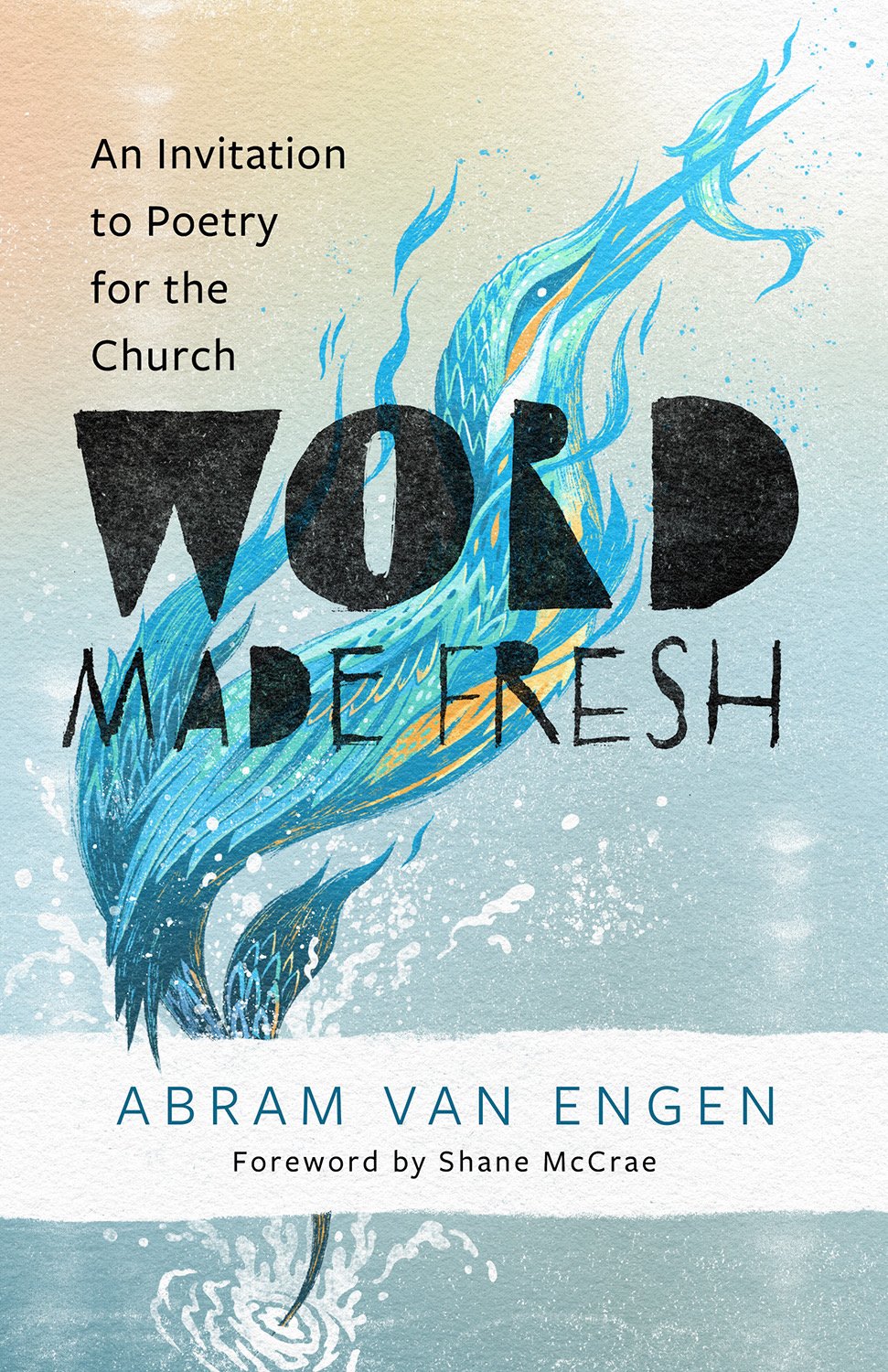Word Made Fresh: An Invitation to Poetry for the Church
Have you ever read a book that turned your world upside down? What about a poem?
Poetry has the power to enliven, challenge, change, and enrich our lives. But it can also feel intimidating, confusing, or simply “not for us.” In these joyful and wise reflections, Abram Van Engen shows readers how poetry is for everyone—and how it can reinvigorate our Christian faith.
Intertwining close readings with personal storytelling, Van Engen explains how and why to read poems as a spiritual practice. Far from dry, academic instruction, his approach encourages readers to delight in poetry, even as they come to understand its form. He also opens up the meaning of poetry and parables in Scripture, revealing the deep connection between literature and theology.
Word Made Fresh is more than a guide to poetry—it’s an invitation to wonder, to speak up, to lament, to praise. Including dozens of poems from diverse authors, this book will inspire curious and thoughtful readers to see God and God’s creation in surprising new ways.
Forthcoming June 25, 2024
City on a Hill: A History of American Exceptionalism
A fresh, original history of America’s national narratives, told through the loss, recovery, and rise of one influential Puritan sermon from 1630 to the present day.
In this illuminating book, Abram C. Van Engen shows how the phrase “city on a hill,” from a 1630 sermon by Massachusetts Bay governor John Winthrop, shaped the story of American exceptionalism in the twentieth century.
By tracing the history of Winthrop’s speech, its changing status through time, and its use in modern politics, Van Engen asks us to reevaluate our national narratives. He tells the story of curators, librarians, collectors, archivists, antiquarians, and other often anonymous figures who emphasized the role of the Pilgrims and Puritans in American history, paving the way for the saving and sanctifying of a single sermon and its eventual transformation into an American tale. This sermon’s rags-to-riches rise reveals the way national stories take shape and shows us how they continue to influence competing visions of the country—the many different meanings of America that emerge from its literary past.
Sympathetic Puritans: Calvinist Fellow Feeling in Early New England
Revising dominant accounts of Puritanism and challenging the literary history of sentimentalism, Sympathetic Puritans argues that a Calvinist theology of sympathy shaped the politics, religion, rhetoric, and literature of early New England. Scholars have often understood and presented sentimentalism as a direct challenge to stern and stoic Puritan forebears; the standard history traces a cult of sensibility back to moral sense philosophy and the Scottish Enlightenment, not Puritan New England. Abram C. Van Engen has unearthed pervasive evidence of sympathy in a large archive of Puritan sermons, treatises, tracts, poems, journals, histories, and captivity narratives. He demonstrates how two types of sympathy—the active command to fellow-feel (a duty), as well as the passive sign that could indicate salvation (a discovery)—permeated Puritan society and came to define the very boundaries of English culture, affecting conceptions of community, relations with Native Americans, and the development of American literature.
Van Engen re-examines the Antinomian Controversy, conversion narratives, transatlantic relations, Puritan missions, Mary Rowlandson's captivity narrative—and Puritan culture more generally—through the lens of sympathy. Demonstrating and explicating a Calvinist theology of sympathy in seventeenth-century New England, the book reveals the religious history of a concept that has previously been associated with more secular roots.
A History of American Puritan Literature
For generations, scholars have imagined American puritans as religious enthusiasts, fleeing persecution, finding refuge in Massachusetts, and founding 'America'. The Puritans have been read as a product of New England and the origin of American exceptionalism. This History challenges the usual understanding of American puritans, offering new ways of reading their history and their literary culture. Together, an international team of authors make clear that puritan America cannot be thought of apart from Native America, and that its literature is also grounded in Britain, Europe, North America, the Caribbean, and networks that spanned the globe. Each chapter focuses on a single place, method, idea, or context to read familiar texts anew and to introduce forgotten or neglected voices and writings. A History of American Puritan Literature is a collaborative effort to create not a singular literary history, but a series of interlocked new histories of American puritan literature.
Co-edited with Kristina Bross.
Feeling Godly: Religious Affections and Christian Contact in Early North America
In 1746, Jonathan Edwards described his philosophy on the process of Christian conversion in A Treatise Concerning Religious Affections. For Edwards, a strict Congregationalist, true conversion is accompanied by a new heart and yields humility, forgiveness, and love—affections that work a change in the person's nature. But, how did other early American communities understand religious affections and come to recognize their manifestation?
Feeling Godly brings together well-known and highly regarded scholars of early American history and literature, Native American studies, African American history, and religious studies to investigate the shape, feel, look, theology, and influence of religious affections in early American sites of contact with and between Christians. While remaining focused on the question of religious affections, these essays span a wide range of early North American cultures, affiliations, practices, and devotions, and enable a comparative approach that draws together a history of emotions with a history of religion.
In addition to the volume editors, this collection includes essays from Joanna Brooks, Kathleen Donegan, Melissa Frost, Stephanie Kirk, Jon Sensbach, Scott Manning Stevens, and Mark Valeri, with an afterword by Barbara H. Rosenwein.
Co-edited with Caroline Wigginton.




